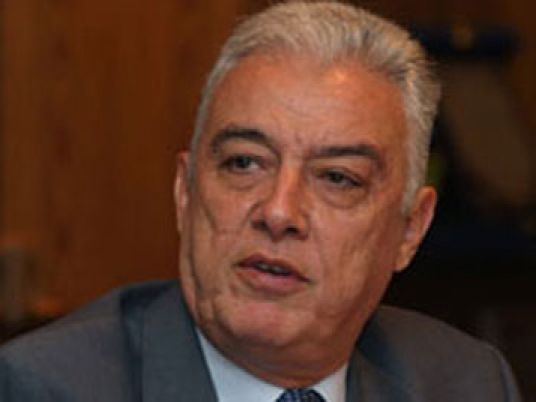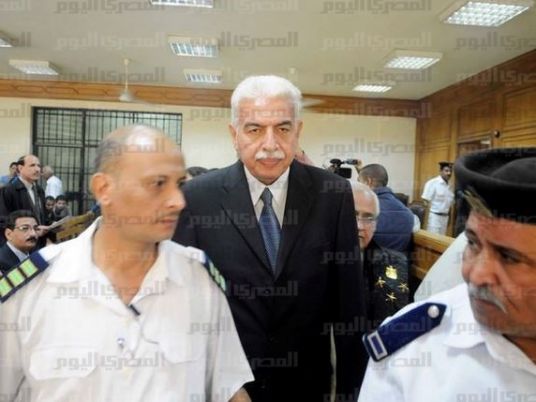Both state-run and independent papers lead with news on Prime Minister Ahmed Nazif’s visit to the Upper Egyptian city of Minya, during which Nazif commented on state funding for medical fees. The prime minister’s comments follow a wave of investigative reports on state officials spending public money on private medical care.
Al-Ahram leads with a quote from Nazif talking about the government’s "Commitment to treat the poor [for free] and to combat corruption in cases of government-sponsored treatment." Nazif said that the government is committed to health care reform through injecting more capital into the sector. Al-Akhbar leads with a similar story, highlighting the government’s promises to support the poor, especially those suffering from long-term diseases.
Al-Dostour’s coverage of Nazif’s visit resembles that of the government papers, however Al-Dostour compares the government’s commitment to treating the poor for free with its efforts to combat corruption around state-sponsored medical treatment. The paper highlights Nazif’s statement that medical care for poor citizens will not be compromised through the ongoing anti-corruption measures.
Al-Shorouq’s coverage of Nazif’s visit to Minya takes another slant, with the paper focusing on security measures put in place ahead of the prime minister’s visit. Al-Shorouq reports that the bus transferring Nazif and fellow ministers bumped into a steel panel at a gas station, which led to minor damage. The paper also details the stops on Nazif’s Minya trip and says that many journalists were barred from accompanying him.
Al-Wafd also takes a skeptical angle in its reporting on Nazif’s tour. In a side bar, the newspaper reports that MP Mohamed el-Umdah revealed in parliament how Nazif attempted to utilize government-sponsored medical treatment amounting to some LE2 million, for the wife of Minister of Health Hatem el-Gibaly and some others, according to Al-Wafd. El-Umdah’s questioning included details such as first-class plane tickets and high per-diems. He demanded the resignation of Nazif and el-Gibaly "in order to preserve the image in the public sphere."
In other news, the question of Egyptian natural gas exports to Israel takes up some space in today’s papers, although less than it has over the last two weeks, during which time the State Council has reached a decision to approve the deal between the two countries.
In Al-Shorouq, renowned columnist Fahmi Howeidi considers the administrative court’s contemplation of the decision. According to Howeidi, while government papers deemed the ruling an endorsement of government policy of selling gas to Israel, they ignored the court’s reservations regarding implementation of the deal. The details of the ruling have yet to be announced.
Howeidi writes that the court’s reservations pertain to three legal violations by the government in implementing the deal. The first violation concerns setting the amount of gas exported to Israel to seven billion cubic meters per year, only to be increased in the case of excess. The second violation is the government’s agreement to fix the price of sale, which closes the opportunity to raise the export price, even if there are changes in the amounts exported. The third violation pertains to the span of the agreement, which extends to 15 years during which no terms can be revisited despite the fact that the exported commodity is of a strategic value.
Howeidi raises a number of other questions about the ruling. He asks why there was such secrecy surrounding the deal, which was only disclosed in 2000 by Israeli media. Howeidi also wonders why the government declined to present key documentations to the court during its two-year investigations on the deal, which led the court to resort to "foreign documents." He also asks why the Ministry of Oil did not revisit the quantity of gas set for export, despite the increase in local consumption. Howeidi ends his criticism with a key question: "What is the real amount of gas reserves in Egypt, which the Ministry of Oil always elevates to 77 trillion feet while the majority of experts suggest that the real reserve is only half this amount?"
Egypt’s newspapers:
Al-Ahram: Daily, state-run, largest distribution in Egypt
Al-Akhbar: Daily, state-run, second to Al-Ahram in institutional size
Al-Gomhorriya: Daily, state-run
Rose el-Youssef: Daily, state-run, close to the National Democratic Party’s Policies Secretariat
Al-Dostour: Daily, privately owned
Al-Shorouq:Daily, privately owned
Al-Wafd: Daily, published by the liberal Wafd Party
Al-Arabi: Weekly, published by the Arab Nasserist party
Youm7: Weekly, privately owned
Sawt el-Umma: Weekly, privately owned


